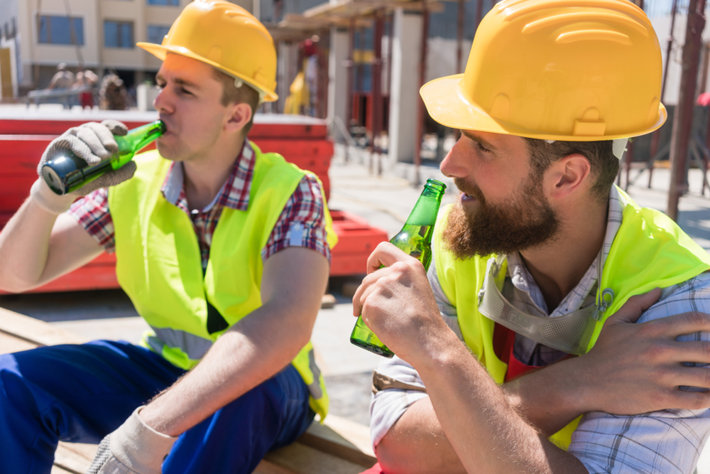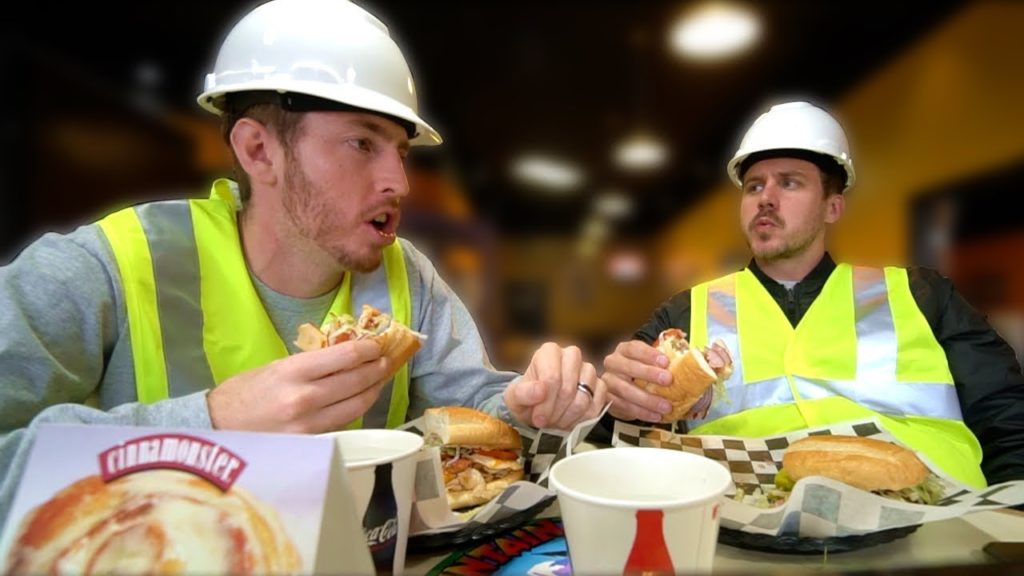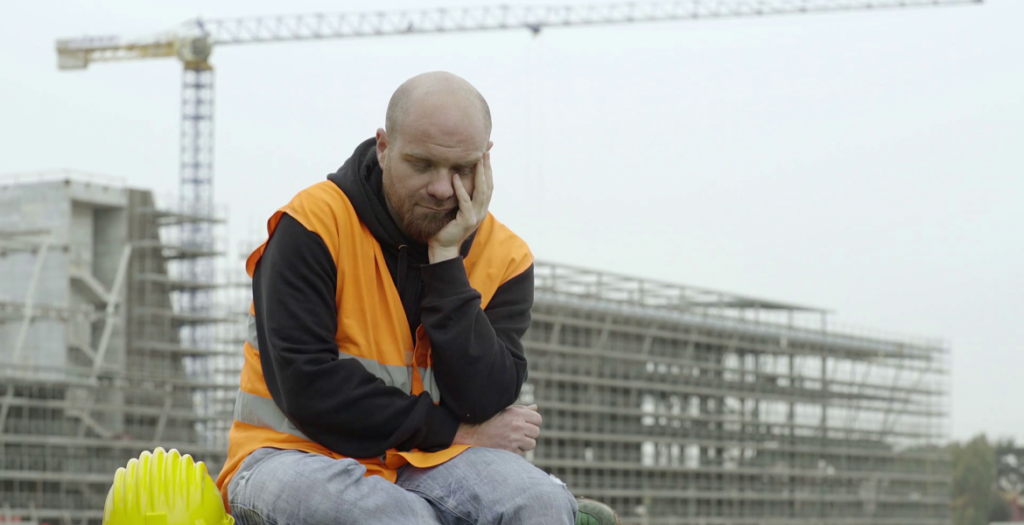Lifestyle and Wellbeing Interventions for Construction Workers
Employee wellbeing is usually an undervalued subject and one that employers are more recently seeing the benefits of addressing. It should be taken seriously, and it needs regular review to ensure workers needs are being met. In a broad sense, wellbeing is understood to mean a time when a person is feeling good and functioning positively. Both your mental and physical health are important factors in wellbeing.
Occupational health has risen up the agenda in recent years. There is now a growing interest in concern for worker wellbeing. This is based on the underlying assumption that focusing upon occupational health factors and wellbeing will improve health and safety, overall performance and productivity. Positive links have been found between the health and wellbeing of employees and productivity and performance.

Employee health and wellbeing falls under the Considerate Constructors Scheme’s Code of Considerate Practice. Particularly the ‘Value their Workforce’ code, in which constructors should provide a supportive and caring working environment. This includes caring for the health and wellbeing of the workforce and providing and maintaining high standards of welfare. Providing occupational health services like Employee Health MOTs/Lifestyle Risk Assessments to employees can help employers meet this considerate practice code.
The construction worker lifestyle is undoubtedly challenging and stressful. Construction workers have to work long and demanding hours. This includes working away from home for long periods of time, and there is also the lingering unease in the industry of when or where your next job will be.
There are a number of lifestyle factors which can put construction workers at risk. For construction workers there is temptation after a long shift to skip the gym, enjoy a couple of drinks with colleagues after work and then find some fast food before getting into bed. Construction worker lifestyle factors can affect work life and can increase the likelihood of injuries or absence in the workplace.
Drugs and Alcohol
SHP online reported that in a survey conducted by the Considerate Constructors Scheme in 2016, 58% of construction workers asked have concerns over the effects of drugs and alcohol on the industry. 35% said they had noticed their colleagues under the influence of drugs and alcohol in work, and 25% agree it affected them at work. Construction workers may use alcohol to ease the stress after a long day of work, to socialise with other workers, or numb the physical pain caused by hours of manual labour.

This is a profession that relies heavily on focus, judgement and coordination, and drinking alcohol or using drugs impairs all of these. One study confirms that there is a correlation between the frequency/seriousness of accidents, absenteeism and consumption of alcohol. Being under the influence of drugs or alcohol or even being hungover on a construction site is extremely dangerous and decreases a construction worker’s productivity. During a Lifestyle Risk Assessment, Occupational Health Practitioners can determine whether an employee has a drug or drinking problem and discuss with them safe alcohol consumption. They may also refer them to a specialist if needed. This will help your site to become a safer, healthier and more productive place.
Unhealthy Diets
Due to the long hours and working away from home, construction workers often do not have the healthiest diet. They will pick up some fast food on the way home from a long shift, or something quick to put in the microwave. Construction workers may use snacks to keep up their energy during the day. These types of convenience foods and snacks are usually full of fat and excess sugars and salt. Eating these types of foods numerous times in a week can lead to several health issues, such as obesity, diabetes, heart disease and high blood pressure. This then increases the likelihood of accidents in the workplace and absenteeism due to the development of these health issues. During a construction worker lifestyle risk assessment, an occupational health clinician can provide advice on healthy eating and how to prevent the risk of developing health issues associated with eating unhealthy foods.

Stress
Construction workers are often transient, and site locations vary from job to job, this usually requires early starts and a lot of travelling, which impacts their home life. This is part of the construction worker lifestyle and means that they often spend very little time at home, and when they are home, they are usually very tired from work and travelling. This can negatively affect their relationships with family and friends, as they do not get the time to spend with them. It also means they get very little downtime, or the chance to switch off from work, which is important in maintaining a healthy work-life balance. Occupational Health clinicians can provide advice on how to manage a work life balance and ways in which to de-stress or wind down after a long shift.
Sleep Deprivation
If construction worker employees are travelling long distances to get to work, and have to be up early to do so, this increases the chance of them being fatigued. Fatigue can lead to accidents and injuries. It means their physical and cognitive function can be impaired, and their reaction times can be slower. This can put them and others around them at risk of accidents in the workplace.

Unfortunately, the construction worker lifestyle is very physically demanding, which often causes exhaustion. If construction workers are driving long distances after a long day or week in work, the chances of them being in a road accident can increase. The Safety and Health Practitioner online reported that in one study, 88% of construction worker managers are failing to achieve the sleep they need over the week .
Fatigue has a huge impact on driving and can affect your ability to drive safely. It leads to slower reaction times, lack of concentration, reduced vigilance, poor judgement and even falling asleep behind the wheel. Most people do not become fatigued from driving – usually they are already tired before they get behind the wheel due to long hours, shift work, lack of sleep and physically demanding roles within the construction worker lifestyle. The road safe charity Brake reported that one in six crashes in the UK that result in death or injury are fatigue related. During a Lifestyle Risk Assessment, an occupational health practitioner can discuss with employees how much sleep they should be getting and ways to get a good night’s sleep. They will also offer advice on what they should do if they are tired and when they shouldn’t drive.

How can Kays Medical help?
In April 2018, research conducted by Westfield Health found that 64% of construction workers wanted better health and wellbeing support from their employers. Caring for the health and wellbeing of your employees doesn’t have to be hard. Kays Medical can help you by providing occupational health services for your employees. We offer Employee Health MOTs/Lifestyle Risk Assessments with a trained clinician. We can provide either half or full days at a time and place that suits you.
By providing Employee Health MOTs/Lifestyle Risk Assessments you can help look after the wellbeing of your employees. A trained clinician will sit down, ask questions and discuss with employees their health and lifestyle to help indicate any possible risks or issues. The clinician can provide advice on ways to reduce risks in their day to day life, such as advice on how to quit smoking, healthy eating and alcohol consumption, as well as information on how to manage stress and maintain a healthy lifestyle and exercise regimen. Employees can discuss any issues they feel they are having and the clinician will provide advice or refer them to a GP if needed.
We can also provide a range of drug & alcohol testing. Contact us now for more information.